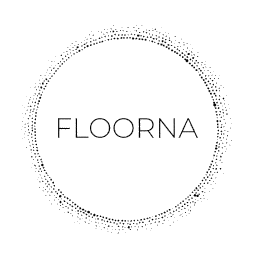When it comes to choosing the right flooring for your home or office, the debate of laminate vs vinyl flooring is one that many homeowners face. Both options offer unique benefits, and understanding the difference between vinyl and laminate flooring can help you make an informed decision. This article dives deep into the key differences, exploring factors like durability, installation, cost, and design options.
Understanding the Difference Between Laminate and Vinyl
Before we get into the vinyl vs laminate flooring pros and cons, it’s crucial to grasp what sets these two flooring types apart.
Laminate flooring is made primarily from high-density fiberboard topped with a photographic layer that mimics natural materials such as wood or stone. This layer is protected by a clear wear layer that resists scratches and stains. Brands like egger laminate flooring are well-known for their quality and realistic finishes.
On the other hand, vinyl flooring is a synthetic product made from polyvinyl chloride (PVC). It comes in sheets, tiles, or planks and is highly water-resistant, making it a popular choice for kitchens and bathrooms. Florna, for instance, is a reputable brand offering stylish and durable vinyl options.
Key Construction Differences:
- Laminate: Fiberboard core + photographic design layer + wear layer
- Vinyl: PVC material + protective top layer
These construction differences directly influence the performance, maintenance, and lifespan of the floors.
Comparing Vinyl vs Laminate Flooring Pros and Cons
Pros of Laminate Flooring:
- Aesthetic Appeal: Laminate flooring offers a realistic wood or stone appearance, especially with premium options like Egger laminate flooring.
- Cost-Effective: Generally less expensive than hardwood but gives a similar look.
- Easy Installation: Most laminate floors use a click-and-lock system, which is DIY-friendly.
- Scratch Resistant: The wear layer protects the surface from everyday scratches.
Cons of Laminate Flooring:
- Water Sensitivity: Laminate is prone to swelling and warping when exposed to water, making it unsuitable for wet areas.
- Hard Surface: Laminate can be harder underfoot and may feel less comfortable.
- Repair Difficulty: Damaged laminate planks usually require replacement rather than repair.
Pros of Vinyl Flooring:
- Waterproof: Vinyl flooring excels in moisture resistance, perfect for bathrooms and kitchens.
- Comfort: Softer and warmer underfoot compared to laminate.
- Versatility: Available in numerous styles, including those that mimic wood, stone, and tile.
- Low Maintenance: Easy to clean and resistant to stains.
Cons of Vinyl Flooring:
- Durability: Can be prone to dents or tears from sharp objects.
- Environmental Concerns: Vinyl is less eco-friendly due to its synthetic materials.
- Resale Value: Vinyl flooring generally doesn’t add as much value to a home compared to laminate or hardwood.
Difference Between Laminate and Vinyl in Installation & Maintenance
Installation:
When debating laminate vs vinyl flooring, installation is a major consideration. Laminate flooring typically uses a floating installation method, which requires an underlayment for moisture protection and soundproofing. This method is fast and often a DIY-friendly process.
Vinyl flooring installation varies by type. Sheet vinyl may require adhesive and professional installation, while luxury vinyl planks (LVP) or tiles (LVT) often feature click-lock systems similar to laminate. Vinyl’s flexibility allows it to be installed over various subfloors, including concrete and existing flooring.
Maintenance:
Laminate requires careful cleaning—excess water can damage it, so damp mopping with specialized cleaners is recommended. Vinyl’s waterproof nature allows for wet mopping without risk, making it easier to maintain in busy households or commercial spaces.
Exploring Popular Brands: Egger Laminate Flooring and Florna Vinyl
For those leaning towards laminate, Egger laminate flooring is a standout choice. Known for its durability, wide range of styles, and ease of installation, Egger flooring offers a premium feel at a reasonable price. Their products often feature high AC ratings (abrasion classes) ensuring longevity in high-traffic areas.
On the vinyl side, florna is recognized for producing stylish and resilient vinyl flooring options. Florna’s vinyl planks and tiles come in various finishes, including wood-look, that bring warmth and texture to any space. Their products emphasize water resistance and ease of upkeep, making them a go-to for homeowners prioritizing functionality.
Which Should You Choose: Laminate vs Vinyl Flooring?
When considering laminate vs vinyl flooring, your choice depends on several factors:
- Location: For moisture-prone areas, vinyl is usually the better option due to its waterproof qualities.
- Aesthetics: If you want the closest look to real wood or stone at a reasonable price, laminate, especially brands like Egger laminate flooring, could be ideal.
- Budget: Both options can be affordable, but vinyl often offers more variety across price points.
- Durability & Use: Vinyl flooring’s resilience to water and ease of cleaning make it excellent for busy, high-moisture areas. Laminate excels in dry areas and offers superior scratch resistance.
Final Thoughts on Vinyl vs Laminate Flooring Pros and Cons
The difference between laminate and vinyl extends beyond materials into lifestyle compatibility. Each flooring type serves distinct needs, and understanding the pros and cons can guide you toward the best choice for your specific situation. Whether you lean towards the realistic charm of laminate or the practical durability of vinyl, knowing these key distinctions ensures you pick a floor that suits your home perfectly.
